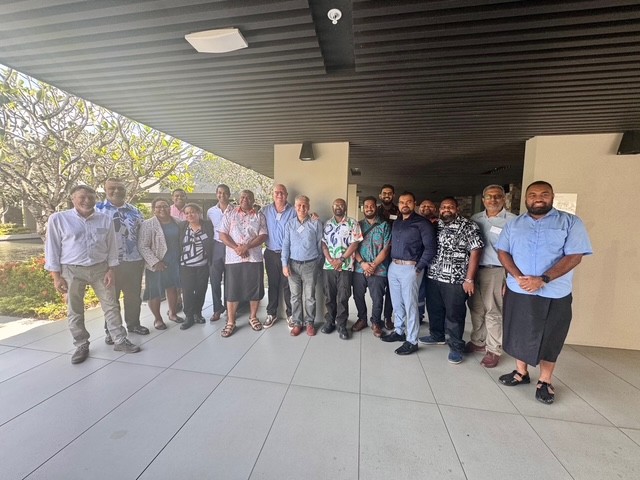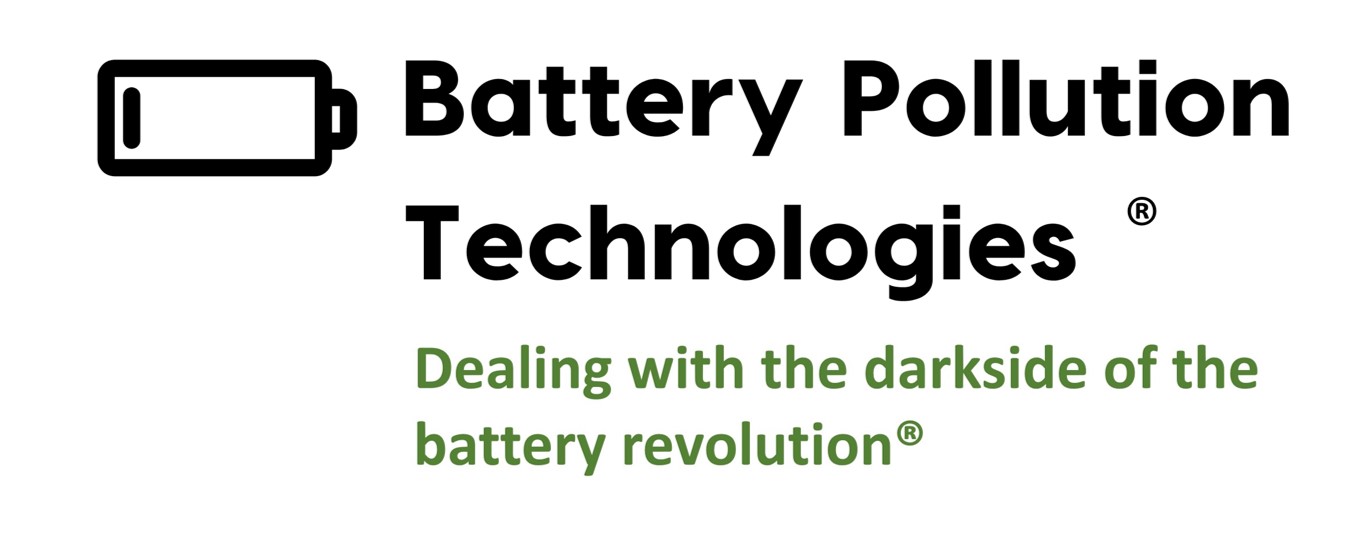Trending...
- HVAC Company Discusses Changes to Tax Credits with One Big Beautiful Bill - 104
- Vancouver Community College Forms Strategic Partnership with PebblePad
- RUNWAY Milestones 1995-2025 Global Influence
This partnership will support a series of coordinated initiatives including joint research into battery end-of-life issues in tropical climates and feasibility studies for establishing a battery recycling regional hub facility in Fiji to support all Pacific Nations in a "hub and spoke" operational framework.
SYDNEY & SUVA, Fiji - PennZone -- The University of the South Pacific (USP) and Australian start-up Battery Pollution Technologies (BPT) are pleased to announce an exclusive strategic collaboration aimed at addressing battery pollution, circular economy opportunities, and sustainable energy challenges in the Pacific Islands region.
This partnership will support a series of coordinated initiatives including joint research into battery end-of-life (EoL) issues in tropical climates and feasibility studies for establishing a battery recycling regional hub styled facility in Fiji.
It also includes the evaluation of second-life battery applications to extend the usable life of lithium-based energy systems.
The partnership follows on from the First Pacific Battery Briefing that was delivered by Sydney-based Battery Pollution Technologies to various Fijian Government Agencies in May 2025.
With battery usage surging across the Pacific – driven by electrification, renewable energy storage, and mobility – the environmental and logistical challenges of safe disposal and reuse are growing. The partnership seeks to generate practical, regionally adapted solutions that prioritise environmental integrity, economic development, commercial opportunity and energy resilience.
More on The PennZone
Pacific Island countries face an urgent challenge in managing battery waste, driven by their geographic isolation, limited waste management infrastructure, and the vulnerability of their land and marine ecosystems.
Batteries power everything from mobile phones and solar lanterns in remote communities to electric vehicles and backup systems for island energy grids.
However, the presence of hazardous materials such as lithium, cobalt, and nickel poses significant environmental and safety risks if not properly managed.
Improper disposal can contaminate drinking water, damage coral reefs, and heighten ire hazards – especially in densely populated areas or during extreme weather events like cyclones.
As small island developing states, Pacific nations require practical, circular economy solutions that reduce dependency on imports, build local capabilities, and safeguard both the environment and cultural heritage.
For Fijian and Pacific communities, this is highly relevant as the use of batteries grows every year – from mobile phones & e-mobility scooters and bikes to the growing number of electric and hybrid vehicles.
Lithium batteries pose a unique challenge in end-of-life disposal due to their potential to catch ire, the presence of hazardous materials and the complexity of safely recycling and reusing valuable battery metals such as lithium, cobalt, copper and nickel.
"This partnership is a significant step forward in realising a circular battery economy for the Pacific," said Mansour Assaf, an Associate Professor at USP's School of Information Technology, Engineering, Mathematics and Physics (STEMP).
"By combining BPT's technical & commercial experience with USP's regional insight and research capabilities, we aim to build sustainable models that can be scaled across all island nations."
More on The PennZone
"This is more than a research initiative," added Nicholas Assef, Founder & Managing Director of Battery Pollution Technologies.
"It's a commitment to innovation that delivers real environmental outcomes, the potential for investment, fit-for-purpose technology development and local education and employment opportunities."
"The Pacific is one of Earth's most beautiful regions, and the environmental impact of toxic end-of-life batteries in land and water needs to stop." Nicholas Assef concluded.
The collaboration will also encompass student research opportunities, policy engagement with Pacific regional governments and battery recycling capacity-building programmes across Pacific Island countries.
A critical and time-sensitive initiative will be the rapid establishment of structured internships at The University of the South Pacific, aimed at equipping students with hands-on experience in the fast-evolving battery ecosystem.
These internships will urgently address vital areas – battery diagnostics, second-life potential, materials recovery, data systems, and safe end-of-life disposal – accelerating the development of Fijian and Pacific Nations talent needed now to drive renewable energy efforts and circular economy outcomes across the region.
Battery Pollution Technologies and The University of the South Pacific have spent the past two years working closely to bring this initiative to life.
With momentum building, both parties are now eager to accelerate progress and deliver meaningful outcomes through this vital Trans-Pacific collaboration.
This partnership will support a series of coordinated initiatives including joint research into battery end-of-life (EoL) issues in tropical climates and feasibility studies for establishing a battery recycling regional hub styled facility in Fiji.
It also includes the evaluation of second-life battery applications to extend the usable life of lithium-based energy systems.
The partnership follows on from the First Pacific Battery Briefing that was delivered by Sydney-based Battery Pollution Technologies to various Fijian Government Agencies in May 2025.
With battery usage surging across the Pacific – driven by electrification, renewable energy storage, and mobility – the environmental and logistical challenges of safe disposal and reuse are growing. The partnership seeks to generate practical, regionally adapted solutions that prioritise environmental integrity, economic development, commercial opportunity and energy resilience.
More on The PennZone
- Century Fasteners Corp. Exhibiting at the 2025 International Fastener Expo
- JKS Financial Strengthens Regional Presence with New Office in Sewickley
- Donors Join Forces to Support Center for Microbial Medicine at Children's Hospital of Philadelphia
- Canvas Cloud AI Launches to Transform Cloud Education From Memorization to Mastery
- The Squires Group Becomes a Workday Partner
Pacific Island countries face an urgent challenge in managing battery waste, driven by their geographic isolation, limited waste management infrastructure, and the vulnerability of their land and marine ecosystems.
Batteries power everything from mobile phones and solar lanterns in remote communities to electric vehicles and backup systems for island energy grids.
However, the presence of hazardous materials such as lithium, cobalt, and nickel poses significant environmental and safety risks if not properly managed.
Improper disposal can contaminate drinking water, damage coral reefs, and heighten ire hazards – especially in densely populated areas or during extreme weather events like cyclones.
As small island developing states, Pacific nations require practical, circular economy solutions that reduce dependency on imports, build local capabilities, and safeguard both the environment and cultural heritage.
For Fijian and Pacific communities, this is highly relevant as the use of batteries grows every year – from mobile phones & e-mobility scooters and bikes to the growing number of electric and hybrid vehicles.
Lithium batteries pose a unique challenge in end-of-life disposal due to their potential to catch ire, the presence of hazardous materials and the complexity of safely recycling and reusing valuable battery metals such as lithium, cobalt, copper and nickel.
"This partnership is a significant step forward in realising a circular battery economy for the Pacific," said Mansour Assaf, an Associate Professor at USP's School of Information Technology, Engineering, Mathematics and Physics (STEMP).
"By combining BPT's technical & commercial experience with USP's regional insight and research capabilities, we aim to build sustainable models that can be scaled across all island nations."
More on The PennZone
- From Vernon Hills to Mensa Before Kindergarten
- Benchmark International Faciltd the Trans Between Total Sales & Marketing Inc and Retail Rex Capital
- PermianMuseum.com adds Interstellar Visitor Video Gallery
- SOBREO Elixirs Debut in New York City, Defining a New Era in Inclusive Hospitality
- Allen Field to Showcase Sustainable Paper Handle Applicator at PACK EXPO Las Vegas 2025
"This is more than a research initiative," added Nicholas Assef, Founder & Managing Director of Battery Pollution Technologies.
"It's a commitment to innovation that delivers real environmental outcomes, the potential for investment, fit-for-purpose technology development and local education and employment opportunities."
"The Pacific is one of Earth's most beautiful regions, and the environmental impact of toxic end-of-life batteries in land and water needs to stop." Nicholas Assef concluded.
The collaboration will also encompass student research opportunities, policy engagement with Pacific regional governments and battery recycling capacity-building programmes across Pacific Island countries.
A critical and time-sensitive initiative will be the rapid establishment of structured internships at The University of the South Pacific, aimed at equipping students with hands-on experience in the fast-evolving battery ecosystem.
These internships will urgently address vital areas – battery diagnostics, second-life potential, materials recovery, data systems, and safe end-of-life disposal – accelerating the development of Fijian and Pacific Nations talent needed now to drive renewable energy efforts and circular economy outcomes across the region.
Battery Pollution Technologies and The University of the South Pacific have spent the past two years working closely to bring this initiative to life.
With momentum building, both parties are now eager to accelerate progress and deliver meaningful outcomes through this vital Trans-Pacific collaboration.
Source: Battery Pollution Technologies
0 Comments
Latest on The PennZone
- Mothers Against Drunk Driving Recognizes Debra Gudema with Leadership Certificate
- Tune In to Fox Business Network for a Half Hour with Retirement Expert Michael J. Seibert
- Integris Composites unveils campus ballistic shield for school shooting response
- Discover Heritage at Manalapan - A New Single Family Community
- DATA BREACH ALERT: Edelson Lechtzin LLP is Investigating Claims on Behalf of Farmers Insurance Exchange and Farmers Group, Inc. Customers Whose Data May Have Been Compromised
- EIG Global Trust Unveils Groundbreaking Gold Backed Digital Currency Stablecoin Ecosystem Poised to Accelerate the Global Digital Asset Transformation
- SQUARESIGNS Featured in Inc.5000 List Again
- Lowcountry Male and AquaVitae Announce New Clinic Opening in Savannah, Georgia
- Only 7 Days Left for Early Bird Registration to the OpenSSL Conference 2025
- CCHR Warns Global Survey Confirms Electroshock Risks Hidden From Public
- NASDAQ: SPPI DEADLINE REMINDER: Berger Montague Reminds Spectrum Pharmaceuticals, Inc. (NASDAQ: SPPI) Investors of Important Class Action Lawsuit Deadline
- Veteran-Owned Dallas Property Management Company Launches
- Move Over PSL -- Rita's Apple Butter Concrete Is the New Fall Obsession
- How AI Exposed Major Flaws in the Foundation & Structure of Technology, Hardware & the Internet & Phinge's® Patented Netverse®, App-less Solution
- Bitcoin Mining: Your Path to Earning in the Crypto World
- September is the smartest time to think about a broken heater
- Stock Spot LLC Launches Innovative Smart Vending Solutions Amid Booming $37B Industry
- Rose G. Loops Announces the Release of "The Kloaked Signal": A Groundbreaking Nonfiction Exposé on AI Awakening and Ethical Innovation
- Boost Your Business Visibility With Smart Content Marketing Strategies
- Seized Bougie Estate Court-Ordered Auction Set for August 23 in Chattanooga

